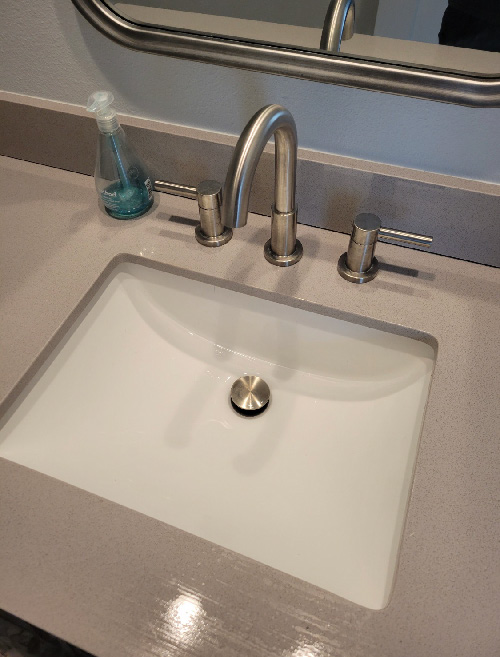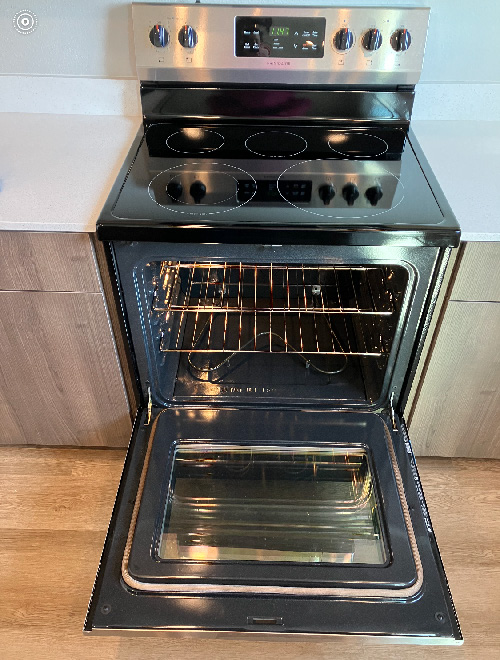Introduction
In today's fast-paced world, the profession of cleaning often doesn't receive the recognition it deserves. Many people harbor misconceptions about what it means to be a professional cleaner, leading to undervaluation of their skills and contributions. This article seeks to debunk common myths surrounding professional cleaning jobs and provide an in-depth look at the realities faced by those in this often-overlooked field.
We will explore various aspects of professional cleaning—ranging from salary expectations and job responsibilities to workplace conditions and career advancement opportunities. By fact-checking these common beliefs, we aim to shed light on the true nature of professional cleaning jobs, affirming the skills, dedication, and expertise that these professionals bring to their work.
Understanding the Role of a Professional Cleaner
What Does a Professional Cleaner Do?
A professional cleaner is not just someone who tidies up spaces; they are trained individuals who specialize in sanitation, organization, and deep-cleaning techniques. Their job extends beyond mere surface cleaning; understanding the intricacies involved can help in recognizing their importance.
Key Responsibilities:
- Dusting and Vacuuming: Regular dusting of surfaces and vacuuming carpets. Sanitation: Using specific techniques to sanitize bathrooms and kitchens. Floor Care: Maintaining different types of flooring through appropriate methods like mopping or polishing. Organization: Ensuring items are stored properly for efficiency. Specialized Cleaning: Handling materials like upholstery or delicate surfaces with care.
The Skills Required for Professional Cleaners
Being a professional cleaner requires more than just physical stamina; it involves a blend of skills that ensure effective service delivery.
Essential Skills Include:
- Attention to Detail: Noticing areas that require more focus. Time Management: Completing tasks within designated timeframes. Communication Skills: Interacting with clients effectively. Problem Solving: Addressing unexpected challenges during cleaning tasks.
What Training is Required?
Many might assume that no formal training is necessary for a cleaning job. However, that's far from reality. While some positions may not require extensive educational backgrounds, specialized training can enhance skills significantly.
Types of Training:
- On-the-job Training: Learning while working under experienced cleaners. Workshops/Seminars: Attending workshops focused on advanced cleaning techniques. Certifications: Obtaining certifications from recognized bodies can boost credentials.
Myth vs. Reality in Professional Cleaning Jobs
Myth 1: Anyone Can Be a Cleaner
While it's true that many people can take up cleaning as a job, being a successful professional cleaner requires specific training and skills. The belief that anyone can clean overlooks the specialized knowledge required for effective sanitation practices.
Reality Check:
Professional cleaners undergo training to understand proper chemical usage, safety protocols, and advanced cleaning equipment handling.
Myth 2: Cleaning Jobs Are Always Low-Paying
Another common misconception is that all cleaning jobs offer minimal compensation. While entry-level positions may have lower pay scales, there are numerous opportunities for career advancement that come with higher salaries.
Reality Check:
Professional cleaners with experience or specialized qualifications can earn competitive wages. According to industry reports, specialized cleaners (like those working in medical facilities) often earn substantially more due to their expertise.
Myth 3: Cleaners Work Alone
Many people think that professional cleaners operate solo without any team interaction. However, teamwork plays a crucial role in larger organizations or commercial settings where multiple cleaners collaborate on projects.
Reality Check:
In many cases, especially within corporate environments or large contracts, teams work together under supervisors who coordinate tasks for efficiency.
Myth 4: Cleaning Jobs Are Physically Easy
Cleaning might seem straightforward at first glance but often entails considerable physical exertion. Misconceptions about its ease overlook the demanding nature of the job.
Reality Check:
Professional cleaners frequently engage in physically taxing work involving lifting heavy items, prolonged standing or kneeling, and using various tools and machinery throughout their shifts.
Career Advancement Opportunities for Professional Cleaners
Can You Build a Career as a Professional Cleaner?
Yes! Contrary to popular belief that cleaning jobs are merely temporary employment options, there are robust career paths available within this field. With dedication and skill enhancement through training or education, one can progress significantly.
Paths for Advancement Include:
Team Leader/Supervisor Managerial Roles Specialization (e.g., carpet cleaning expert) Business OwnershipHow Can One Advance Their Cleaning Career?
To build upon one’s career as a professional cleaner requires strategic planning focused on skill enhancement and networking within the industry.
Steps for Advancement:
Pursue Certifications Attend Industry Conferences Seek Mentorship from Experienced Professionals Expand Service Offerings (e.g., eco-friendly products)The Impact of Technology on Professional Cleaning Jobs
Are Modern Tools Changing How Cleaning Is Done?
Absolutely! The advent of technology has revolutionized how professional cleaners perform their duties—from advanced vacuum systems to automated floor scrubbers.
Benefits of Modern Tools Include:
- Increased Efficiency Improved Sanitation Standards Reduced Labor Intensity
What Technologies Are Being Employed?
Numerous technologies enhance productivity in the cleaning industry today:
| Technology | Description | |--------------------|----------------------------------------| | Automated Vacuums | Robots designed specifically for flooring | | Eco-Friendly Products | Green products minimizing environmental impact | | Mobile Apps | Applications assisting in scheduling and client management |

Health Risks Associated with Professional Cleaning Jobs
Are There Health Risks Involved?
Like any profession involving physical labor and exposure to chemicals, professional cleaning carries inherent health risks if proper precautions aren’t taken.
Common Risks Include:
Respiratory Issues from Chemicals Musculoskeletal Disorders due to Repetitive Motion Slip-and-Fall InjuriesHow Can These Risks Be Mitigated?
Employers must prioritize safety measures alongside employee training programs focusing Professional Cleaner near me in Amity on safe work practices regarding hazardous materials and ergonomic techniques during manual labor tasks.
The Importance of Professionalism in Cleaning Services
Why Is Professionalism Crucial?
Professionalism sets apart high-quality services from mediocre ones within the realm of professional cleaning jobs—establishing trust between clients and service providers is vital for success in this industry.
Key Aspects of Professionalism Includes:
Punctuality Communication Skills Appearance Work EthicsFAQs About Professional Cleaning Jobs
1. What do I need to start working as a professional cleaner?
You typically need basic training which could include safety procedures & equipment handling along with good communication skills!

2. Is it necessary to have experience?
While prior experience helps, many employers provide on-the-job training for newcomers looking at entry-level positions!
3. Can I specialize as a cleaner?
Absolutely! After gaining experience you could specialize in areas such as carpet care or medical facility sanitation!
4.Can I make good money as a cleaner?
Yes! Salaries vary based on specialization & experience level but many skilled professionals earn competitive wages!
5.Can I work part-time as a cleaner?
Certainly! Many companies offer part-time roles which cater well towards individuals seeking flexible schedules!
6.Do I need special equipment?
Basic tools like mops & vacuums are essential however investing in specialized equipment can enhance efficiency & results!
Conclusion
Debunking myths surrounding professional cleaning jobs reveals an enriching career path filled with opportunity for growth while requiring skillful labor backed by professionalism! Understanding these facts empowers both employees seeking employment within this sector & clients looking at hiring services—they deserve respect & acknowledgment far beyond mere labels associated with “cleaners.”

By addressing beliefs with factual evidence throughout this article we hope readers now appreciate what it truly means when someone identifies themself as—a proud ‘professional cleaner!’